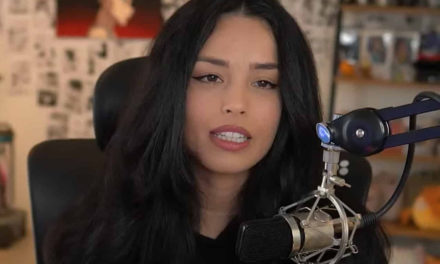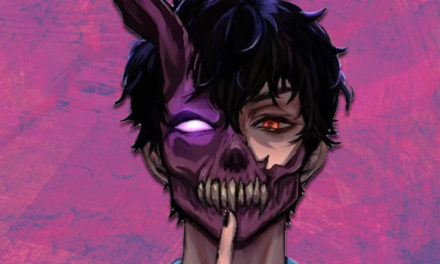Last November 9th, a member of the Twitch drag collective Stream Queens Elix was streaming when police arrived at their home and demanded they come outside.
When they walked out the front door, four guns were pointed at them, and several officers from the Las Vegas Metropolitan Police Department surrounded their home.
Elix told NBC News that she was accused of murdering her brother and was about to commit suicide, but after speaking with police, it was revealed that Elix was the victim of a horrific swatting prank – a term used when someone calls law enforcement to report a serious crime or situation, resulting in officers arriving at the target’s home. Andrew Finch, a Kansas man, was killed by a swatting prank in 2017.
The incident “shook” Elix and her family, but they weren’t “frightened” because they knew her community was waiting for her. They said they went back inside their house after the swatting attack and continued to stream on Twitch.
Elix stated that she will not stop doing what she enjoys and that she will continue to inspire others and be who she is.
When people are swatted, Elix told Insider that many people don’t speak much, and she wasn’t the only drag queen who had experienced this.
She claimed that she is not a huge streamer and that they simply go about their business, making people happy, and that they are being attacked for it.
Elix, unfortunately, is one of six queens swatted since September. Mia E Z’Lay, a drag performer who streams on Twitch, told the outlet that she reported trolls posting her address and phone number in her stream in October to local police in Connecticut, fearing she would be swatted. She claimed that the local police did not listen to her concerns because things worsened the next day.
E Z’Lay said police arrived at her house and demanded she come outside during a livestream. She recalled at least 13 officers arriving at her home with guns drawn and handcuffing her as they searched her property.
E Z’Lay claimed that her fans could hear the officers raiding her home because she was in the middle of a broadcast when they arrived.
Stream Queens members, she said, have attempted to disseminate useful information and warn other members about the signs of potential swatters. However, she cautioned that advice could only go so far in protecting drag collective members from the vicious attacks.
Elix believes that live streaming platforms, such as Twitch, should do a better job of assisting users in protecting their identity and privacy, as well as providing guides on what to do if they are doxxed or swatted.
It’s becoming more common, according to Elix, especially within the LGBTQIA+ community. She wishes Twitch would speak up about it because their silence is depressing.
She went on to say that she’ll be as loud as she can to let people know that this is still going on and that many lives are in danger.
On Twitch, attacks on the LGBT+ community are unfortunately all too common. Twitch creators and viewers participated in “A Day Off Twitch” in September to protest a wave of hate raids.
The boycott came after a viral campaign called “#TwitchDoBetter,” which aimed to raise awareness and find a solution to the streaming platform’s rise in racism, transphobia, and abuse.
In a statement, a Twitch spokesperson said that “hate and harassment” are “unacceptable” on the platform and are “prohibited by our community guidelines.”
Twitch is constantly gathering community feedback in order to develop tools and guides that ensure its members have access to critical information that keeps them safe, according to the company.







